Racial Stereotyping in YA Lit, a reflection by Stephanie Wilkes
I will be the first to admit that I feel awkward at times addressing the race issue in YA literature. Perhaps it is because I live in Louisiana, and when the word race or racism is even mentioned, people scatter so quickly away that you can immediately hear the lone cricket chirp. Perhaps this Southern stigma has paralyzed me in some ways of really tackling a topic that has bothered me for far too long but I did not feel as if I could speak out.
 |
| Who is reading books by Sarah Dessen? It might surprise you. |
Lately there have been many reports about the ‘cover’ representation of teens in YA literature and for those of us in libraries, there is no surprise that there are few covers that depict African-American teens. To see more of the excellent research that YA writer Kate Hart has compiled, visit her post about this issue here. But putting the obvious issues aside, something else bothered me even more.
ADVERTISEMENT
ADVERTISEMENT
When I work with my incarcerated teens, who in my community are largely African-American, they do not view books by what teens are depicted on the covers but rather by the story. By a good plot. And what I have discovered through almost two years of collaboration and discussion is that they don’t want to read the books that I bring them about African-American teens. They don’t want to read Walter Dean Myers’ Monster or The First Part Last by Angela Johnson. Instead, they immediately put those books down and they gravitated towards Hate List by Jennifer Brown, Perfect Chemistry by Simone Elkeles, and The Truth About Forever by Sarah Dessen. Some of my boys wanted more of Elkeles’ books immediately and my teen girls were craving any and everything Ellen Hopkins.
So eventually, I got brave and asked the faux pas of questions: Why don’t you want to read books about other black kids? And the answer I got time and time again? Because I’m sick of reading about crackhead thugs and pregnant chicks. We are more than just a bunch of thugs. I sat back, dumbfounded. I never thought about the fact that every single title I had brought them which featured an African-American main character also could be considered an “issue” novel: pregnancy, rape, jail time, drugs, gangs, graffiti artists…I could go on. And then, I began to notice the racial stereotype that was being portrayed through the literature that I kept bringing in.
The discussions continued and as we got to know each other a little more, I realized that my teens were looking for characters that identified them but not necessarily by race, gender, or even life situations…they were looking for key traits in characters or even sometimes, just a certain feeling evoked by a genre. For example, some of my boys were madly in love with a set of Sarah Dessen books that I brought. SARAH DESSEN. For incarcerated African-American male youth. Seriously. And even though I never wish to judge my teens to wonder what they are reading…it blew my mind.
What I began to realize is that as a teen services librarian,who tries to keep my agent, editor, and author friends wary of trends/issues in YA fiction, I’d rather advocate for writers of any color to write books which depict all kinds of people. There are stereotypes for almost every race and for some reason, all of the YA books which I’ve read recently seem to play into them. I want my African-American teen writers to write books about teens that just go to to school and live with Mom and Dad and are normal teens. I want to preserve part of the culture so that when our ancestors look back hundreds of years from now, they don’t look at YA literature and try to pigeonhole the racial makeup of a group of people by a set group of actions.
Do others have this problem or feel this way? I feel as if it is a catch-22 because I want to make sure that I have books about African-American teens so that I serve my patron base but should we really be concerned about the race of a character in a book? It seems to me as if our teens don’t really care about the color but more so about the actions. I’m leaving this all open for discussion below and I hope you’ll share with us your challenges, concerns, and general thoughts about racial stereotyping in YA lit.
Filed under: Uncategorized
About Karen Jensen, MLS
Karen Jensen has been a Teen Services Librarian for almost 30 years. She created TLT in 2011 and is the co-editor of The Whole Library Handbook: Teen Services with Heather Booth (ALA Editions, 2014).
ADVERTISEMENT
ADVERTISEMENT
SLJ Blog Network
The Moral Dilemma of THE MONSTER AT THE END OF THIS BOOK
Cover Reveal and Q&A: The One and Only Googoosh with Azadeh Westergaard
Winnie-The-Pooh | Review
Parsing Religion in Public Schools
ADVERTISEMENT



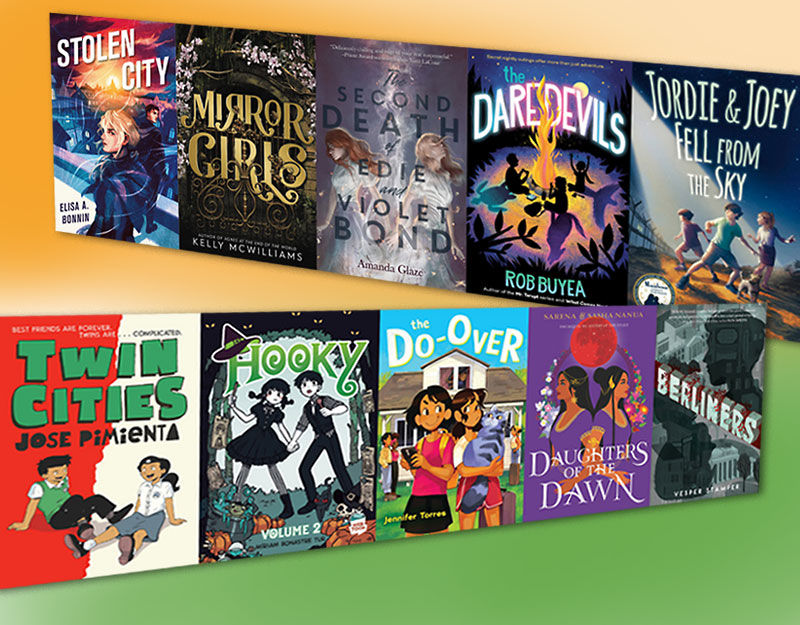
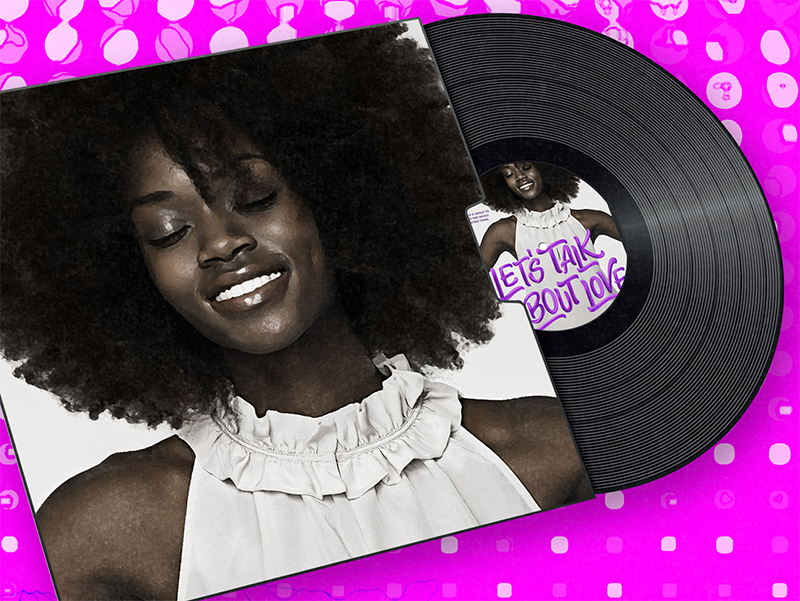
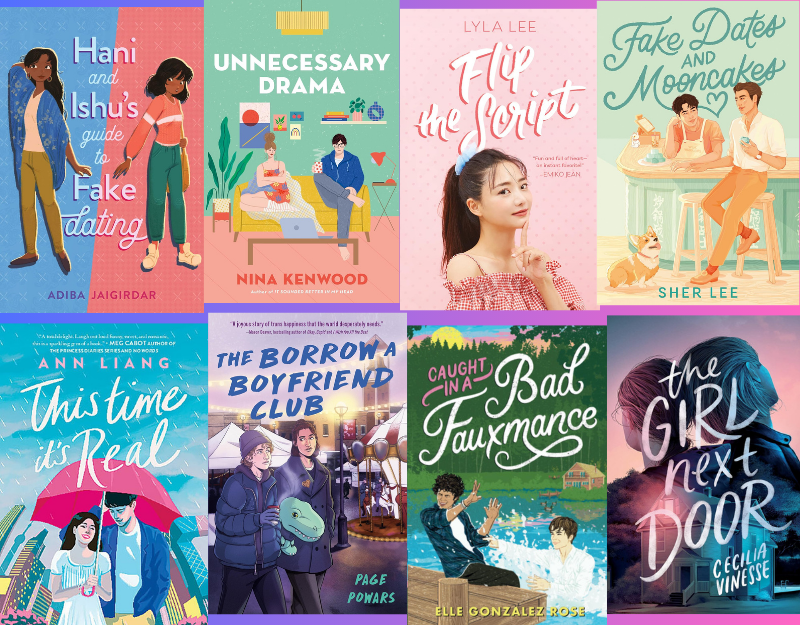
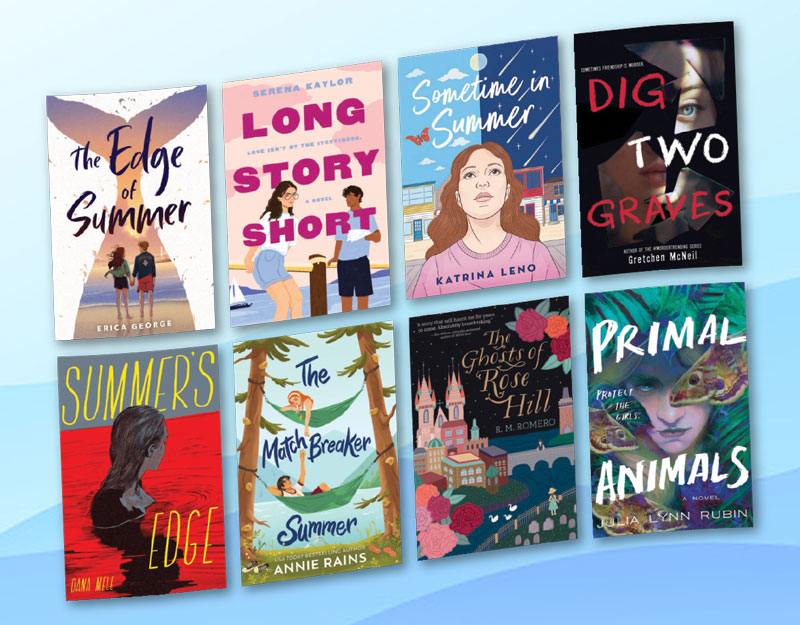
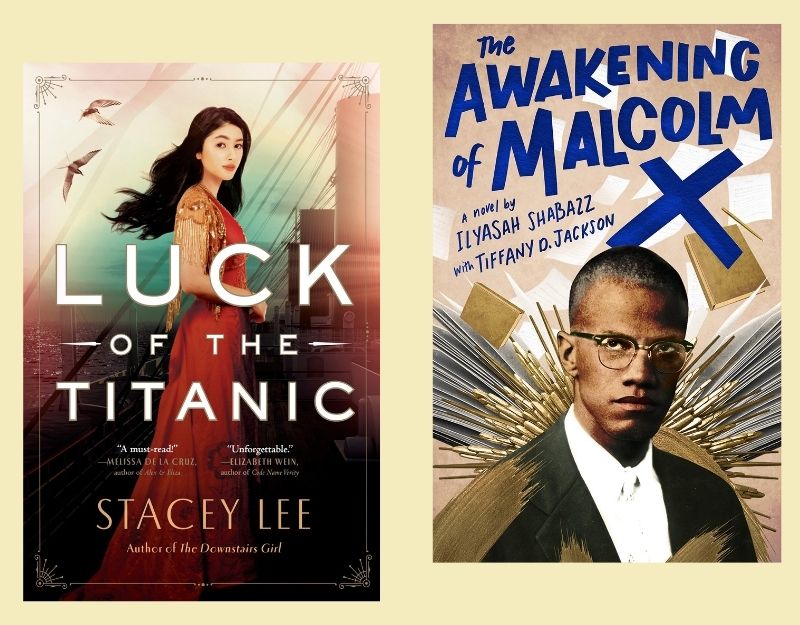
At the library branch I work at, our patrons are probably 80% African American. Our teens come in after school and are very education focused. In fact, this is the first library I have worked at with such a high percentage of teens coming into the library after school WITH parents to select materials. We have the Bluford High series, which does circulate, but to be honest – it doesn't accurately reflect these teens lives. Nor does Walter Dean Myers. I know the other day when we were having a #mclitchat Tweet chat about book covers, I mentioned that we needed more The Cosby Show type families in ya lit geared towards African Americans. As Stephanie said, they are not all gangbangers popping out babies and we do them a disservice when this is all we have in our collections.
That should be #mglitchat
This is a really good point. I love Simone Elkeles' books; she gets a break for me because she features dynamic characters who grow. since it follows the Fuentes brothers they're coming from the same family so I get why they are all dealing with gangs and poverty etc. But I agree that characters of color shouldn't be relegated to issue books. What about all the girls in pretty dresses being sought out by mysterious gorgeous guys with enchanting abilities?
The real question is, are these books not being written, or are they not making it to publication? There's a difference.
For many of my teens, poverty, pregnancy, rape, jail time, drugs, gangs etc are very real issues in their lives, and I am glad that there are books are that feature characters that look like them working through the same issues they are. That said, I too wish there were more books, especially contemporary realistic fiction, that featured protags of color facing some less extreme (and less stereotypical) challenges. In my urban public charter school library in Northeast DC, where I serve about 700 minority students in grades 6-12 (91% Af-Am, 9% Hispanic), our highest circulating books are Af-Am teen series: books by Ni Ni Simone, Nikki Carter, L Divine, Kimani Tru, Darrien Lee, Babygirl Daniels, Paula Chace… I've found that some of our girls are much less willing to read books with white characters than our guys, who're often looking for sports books or scifi or fantasy. Yes, there's a fair number of guys who're looking for gritty issue books, but there's a little more ethnic diversity of characters within those guy reads: Going, Hautman, Volponi, Strasser, de la Pena…
At the same time, I wonder if the popularity of series like Drama High, Denim Diaries and Kimani Tru with my girls has more to do with the longstanding success of series books with teen girls than the african american protagonists? Books like Gossip Girl, A-List, The Clique ect are also popular. Thoughts? Tweet me! @sylvie_shaffer
“The real question is, are these books not being written, or are they not making it to publication? There's a difference.”
Great question. Wonder if we'll ever really know?
A great start to a conversation! I hope all this discussion about race in YA doesn't lead authors to writing the sort of issue books just so they can include persons of colour in their works. I think we need a VARIETY of stories with DIVERSE characters. What seems to be happening now, is that many of the books that feature persons of color are about heavy hitting issues, when it seems like the youth you work with want the books that talk about eternal issues: falling in love, fitting in, discovering your identity, growing up, etc. but with diverse characters! Not a tall order, but sadly, it's not being filled.
It's really interesting – I just read a great post on Malinda Lo's blog about the history of queer YA fiction. It started off very problematic, with all the stories being about basically how identify as queer was a death sentence – that MC's always died or were punished severely by fate somehow. Then it got into “gay issues” such as bullying, suicide, homophobia, etc. Only now is it starting to turn to more positivity – a celebration of queer youth, their identity and their lives. I think YA lit is experiencing a similar trend, and right now it feels as if we are stuck in that “issues” spot. Hopefully the coming years will bring a variety of YA fiction that celebrates ALL youth, their heritage, race and culture. I can't wait to begin reading those books!
Thanks for the great discussion! Also, I think it is SO awesome that the guys are interested in Sarah Dessen. Who knew, right? I guess if you give them the choices, and don't narrow them for them, they'll find ways to surprise you. It sounds like an amazing program you are running.
All the best!
This reminds me of when The Hunger Games had just been released recently as a movie.
Many of the fans of Collins's series had glazed over details about the appearance of a few of her characters (namely, Rue), and were ASTOUNDED when they found out that they weren't white.
I understand that this is actually quite on the other side of the issue you're discussing, but it reminded me that as adults, we tend to see things in a harsher reality. We've been exposed to the need to be politically correct at all times, and as such, we often tend to actually come off almost as more racist, in many cases. We feed into stereotypes in an effort to try to appeal to people of other races, colors, ethnicities, instead of making sure that other people are aware that we recognize them not as another color, but instead as another human being.
It was astonishing to me that so many people–children and adults alike–suddenly changed their view on The Hunger Games, a series they had been enamored with, because race became a more prominent issue to them the moment that they had a real image to look at. Whenever they go back to read the books now, they'll be scrutinizing the pages, trying to re-evaluate whether the details about those characters they once cried over (details that they had so effectively glazed over) make a difference to the way the story is told to them.
So… I can see where your job as a teen librarian suddenly becomes more difficult in these cases. I think it's amazing that you've been able to step back and see what these teens are seeing, and feel what it is that makes them gravitate to the books they do gravitate towards. It sounds like you're doing a fantastic job, and like you may touch somebody one day enough to change even a small piece of somebody's world. Keep it up!
Right now I'm reading Scored by Laurie McLaughlin, with a great mixed race, female MC.
I will say that I LOVE Sarah Dessen books! I can understand how your students feel though. I am black/latina and I guess I have never had an issue with reading racial stereotypical books; only because it was a predominantly white school, so I did not really have a choice.